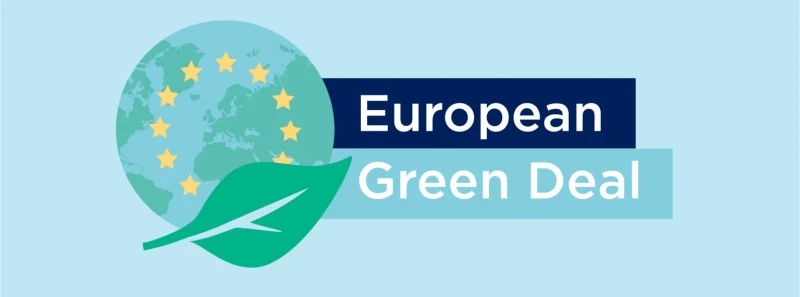European Green Deal: European Union rolls out sustainable food agriculture monitoring platform
European Green Deal: European Union rolls out sustainable food agriculture monitoring platform


Transforming the food system is an urgent challenge to achieve the sustainable development goals and key EU policy priorities, among them a resource-efficient, competitive, and inclusive economy, envisaged by the European Green Deal.
At the same time, understanding the food system through a combination of environmental, economic, social, and health lenses remains a challenge. In this context, effective monitoring of the transition to sustainable food systems is a fundamental feature to help researchers, stakeholders, and decision-makers track progress and set priorities for future actions.
To meet this objective, the JRC has set a monitoring framework and an associated dashboard delivering a comprehensive view [of] the environmental, economic, and social impacts of the EU food system, including [the] health impacts of diets.
What should be monitored?
The food system holds an important role in reaching the goals of the Green Deal. Building on extensive research, a dedicated, comprehensive tool has now been established to assess the sustainability related to food production, processing, distribution, and consumption up to waste, across all sustainability dimensions.
To enable the monitoring process, the JRC has developed a dashboard stemming from a conceptual model grounded in scientific literature and policy analysis. The dashboard covers three key sustainability dimensions (environmental, social, and economic), organised into dedicated thematic areas and domains.
It provides a comprehensive and cross-sectoral overview of the food supply chain, covering all its components – from primary pre-production and production to food processing, distribution, consumption, and disposal – and the different sustainability aspects.
Navigating the dashboard
The performance of the EU food system is assessed using indicators originating from public data sources or scientific research and organised within a hierarchical framework. When analysed together, these indicators can assess the state and trends of the EU food system sustainability.
Over 300 indicators have been screened for fitness for purpose and continuous data provision, which were categorised as headline, secondary, and placeholder. Headline and secondary indicators have been selected for inclusion in the dashboard, while placeholders mark development priorities.
The first release of the dashboard includes 44 headline indicators that inform on the most important aspects of [the] EU food system’s sustainability, linking to aspects of climate; pollution; biodiversity; economic viability; food environment, nutrition, and their respective health impacts. This also highlights the inextricable links between healthy people, healthy societies, and a healthy planet.
The dashboard will evolve … and include new indicators in line with scientific, technical and policy developments. Linking existing indicators to the conceptual framework has revealed knowledge gaps, paving the way for further research.
Currently, most of the gaps are associated with food processing, distribution, and consumption. These areas are mostly governed by the private sector, with limited publicly accessible data. Exploring alternative sources, such as big data, [maybe] a way forward. However, special attention has to be paid to ensure the quality of data, including data supply at regular intervals with full geographical coverage.
Read the original post here

 | Videos | More... |

Video: Nuclear energy will destroy us? Global warming is an existential threat? Chemicals are massacring bees? Donate to the Green Industrial Complex!
 | Bees & Pollinators | More... |

GLP podcast: Science journalism is a mess. Here’s how to fix it

Mosquito massacre: Can we safely tackle malaria with a CRISPR gene drive?

Are we facing an ‘Insect Apocalypse’ caused by ‘intensive, industrial’ farming and agricultural chemicals? The media say yes; Science says ‘no’
 | Infographics | More... |

Infographic: Global regulatory and health research agencies on whether glyphosate causes cancer
 | GMO FAQs | More... |

Why is there controversy over GMO foods but not GMO drugs?

How are GMOs labeled around the world?

How does genetic engineering differ from conventional breeding?
 | GLP Profiles | More... |

Alex Jones: Right-wing conspiracy theorist stokes fear of GMOs, pesticides to sell ‘health supplements’




 Viewpoint — Fact checking MAHA mythmakers: How wellness influencers and RFK, Jr. undermine American science and health
Viewpoint — Fact checking MAHA mythmakers: How wellness influencers and RFK, Jr. undermine American science and health Viewpoint: Video — Big Solar is gobbling up productive agricultural land and hurting farmers yet providing little energy or sustainabilty gains
Viewpoint: Video — Big Solar is gobbling up productive agricultural land and hurting farmers yet providing little energy or sustainabilty gains Fighting deforestation with CO2: Biotechnology breakthrough creates sustainable palm oil alternative for cosmetics
Fighting deforestation with CO2: Biotechnology breakthrough creates sustainable palm oil alternative for cosmetics Trust issues: What happens when therapists use ChatGPT?
Trust issues: What happens when therapists use ChatGPT? 30-year-old tomato line shows genetic resistance to devastating virus
30-year-old tomato line shows genetic resistance to devastating virus California, Washington, Oregon forge immunization alliance to safeguard vaccine access against federal undermining
California, Washington, Oregon forge immunization alliance to safeguard vaccine access against federal undermining The free-range chicken dilemma: Better for birds, but with substantial costs
The free-range chicken dilemma: Better for birds, but with substantial costs ‘You have to treat the brain first’: Rethinking chronic pain with Sanjay Gupta
‘You have to treat the brain first’: Rethinking chronic pain with Sanjay Gupta
